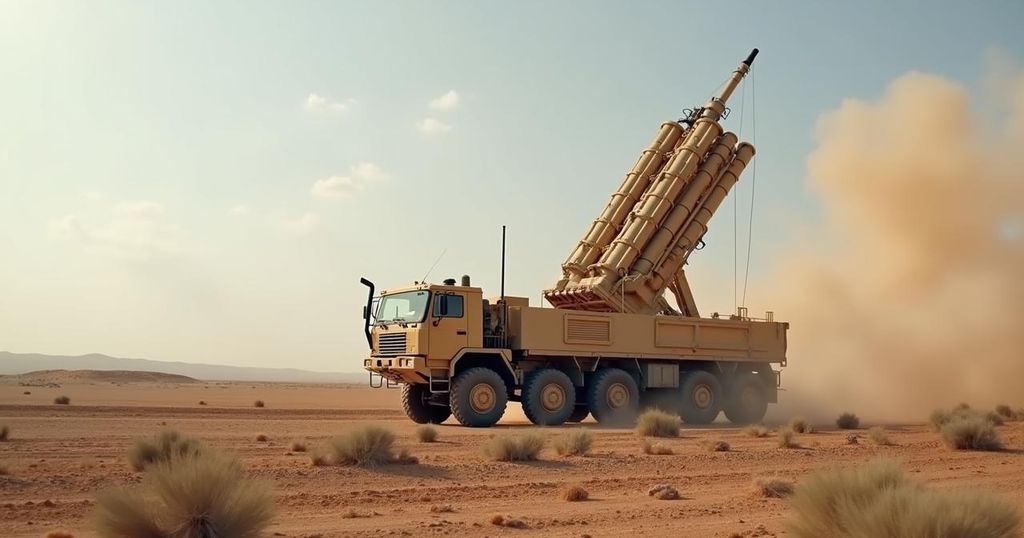The U.S. has announced the deployment of a Thaad missile system and troops to Israel amid escalated conflict with Hezbollah, which conducted a drone strike killing four Israeli soldiers. Netanyahu’s call for the withdrawal of UN peacekeeping forces and recent Israeli airstrikes in Gaza, which resulted in civilian casualties, have intensified the situation. UN officials have cautioned that attacks on peacekeepers could constitute a war crime, highlighting the urgent humanitarian issues arising from the ongoing violence.
In the latest developments regarding the Israel-Lebanon conflict, the United States is dispatching a Terminal High Altitude Area Defense (Thaad) missile system, along with military personnel, to Israel. This decision was announced shortly after Iran issued a warning to the U.S. to refrain from sending troops to the region. The Pentagon emphasized that the Thaad deployment reaffirms America’s steadfast commitment to Israel’s defense and aims to protect American personnel from potential ballistic missile threats from Iran. Amid this backdrop, Hezbollah executed a drone strike on an Israeli military installation in central Israel, resulting in the deaths of four Israeli soldiers and inflicting injuries on at least seven others. Hezbollah described the assault as retaliation for Israeli airstrikes on Beirut that killed 22 individuals. The rising tensions have led Israeli Prime Minister Benjamin Netanyahu to call for the immediate withdrawal of United Nations peacekeeping forces from southern Lebanon, stating that their presence provides cover for Hezbollah’s operations. Additionally, recent violence in the region has raised alarms within the United Nations, as attacks on peacekeepers have been labeled a potential war crime, highlighting the urgent need for protection measures in conflict zones. Concurrently, Israeli airstrikes in Gaza continue, with recent reports indicating casualties amongst civilians, including at least 20 deaths at a school sheltering displaced individuals. The ongoing military escalations on both sides emphasize the severity of the situation, prompting international scrutiny and condemnation. As the conflict unfolds, the positions of regional stakeholders remain tense, marking a critical moment for diplomatic discussions and humanitarian considerations.
The conflict between Israel and Lebanon has escalated significantly over recent weeks, particularly involving the Iran-backed militant group Hezbollah. Following a series of retaliatory strikes and increased military involvement from regional powers, the situation has garnered international attention. The U.S. response, characterized by military support to Israel, underscores ongoing tensions that stem from longstanding territorial and political disputes in the Middle East. The situation is further complicated by civilian casualties and the impact on humanitarian conditions in neighboring areas, especially Gaza.
The recent escalation in hostilities between Israel and Hezbollah, coupled with the United States’ military assistance, illustrates the complexity of the Israel-Lebanon conflict. The dire circumstances for civilians amidst military actions and the potential implications of peacekeeper attacks raise critical questions regarding international law and the urgency for a diplomatic resolution. As both sides continue to engage in military operations, the international community must address the humanitarian crises that develop as a result of such conflicts, striving towards sustainable peace.
Original Source: www.independent.co.uk






